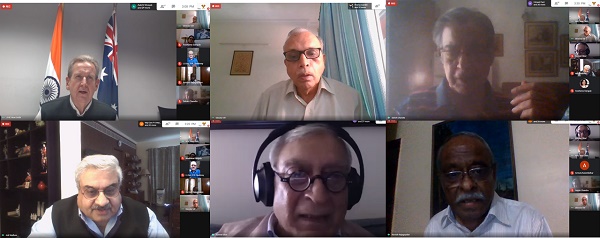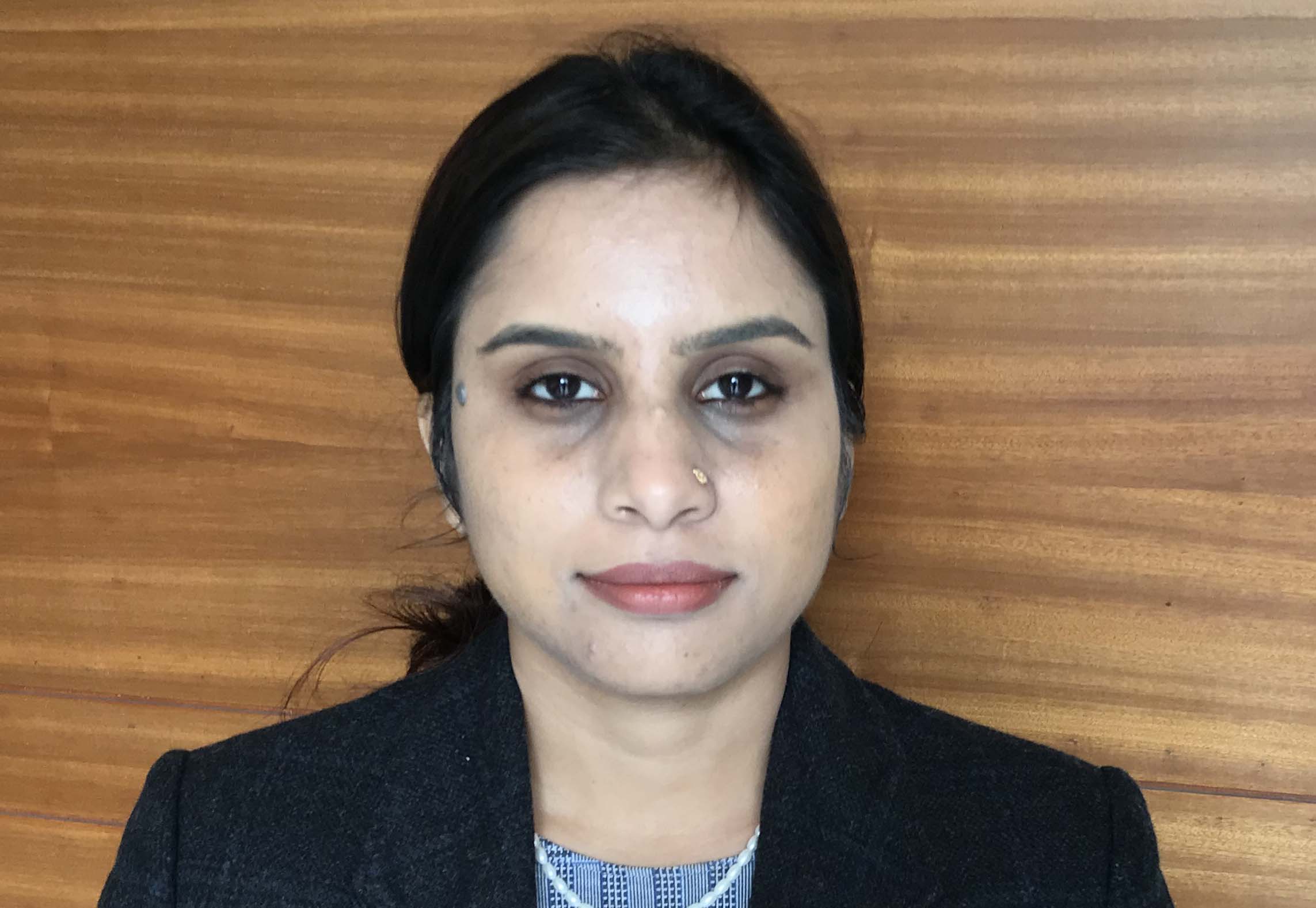Vivekananda International Foundation hosted His Excellency, Mr. Barry O’Farrell for an interaction on India-Australia bilateral relations. Dr. Arvind Gupta, Director, VIF, Amb. Anil Wadhwa, Distinguished Fellow, VIF, Amb. Kanwal Sibal, former foreign secretary, Amb. Satish Chandra, Vice-Chairman, VIF, Lt. Gen Ravi Sawhney (retd.), Senior fellow, VIF, Vice. Adm. Anil Chopra (retd.), Distinguished Fellow, VIF and others from VIF were in attendance.
India and Australia relations have been elevated to comprehensive strategic partnership since 6th June 2020 when Prime Minister Modi and Prime Minister Scott Morrison held a virtual summit. Both the countries have come a long way from their earlier dynamics. The relationship today is more aligned than ever. It is based on shared values of democracy and multilateralism. There is commonality of goals by way of ensuring economic growth and prosperity to its citizens.
The bilateral relationship has shaped in the context of three trends. One, there is a change in the global centre of power from the Atlantic to the Indo-Pacific. Second, today in the world politics seems to triumph economics. When it comes to the region of the Indo-Pacific the ideas of democracy and rule of law- that both India and Australia value greatly, are being contested. Thirdly, and particularly in the event of the COVID-19 pandemic, the dark side of globalisation has become discernible. The effect of the pandemic in disrupting the supply chains has been severe. Globalisation has been hugely advantageous to countries all over the world, but even more so for the states in the Indo-Pacific. When countries enjoy a state of inter-dependency under globalisation, mutual trust becomes very important. Hence effort must be to build supply chains that stand the test of the time, the ones are politically strong.

The joint vision on the Indo-Pacific is very important as both India and Australia have similar outlook for this region. Both desire a free and open Indo-Pacific, where sea-lanes of communication remain open and secure in line with the existing international law. First and foremost, neither side desires a situation where the Indo-Pacific region is dominated by one power. As middle powers, both India and Australia would want to ensure an environment where the voices of the small and medium powers should be heard. Today the Indo-Pacific region faces the challenge of authoritarianism. There is an attempt to project authoritarianism as a better political system than democracy. But the value of democracy lies in transparency and accountability. Democracy and democratic values need to be safeguarded.
Many countries in the Indo-Pacific region face challenge to its sovereignty- there are territorial conflicts on land borders and contestations in the seas.
Together, India and Australia have the opportunity to involve in maritime capacity building in Southeast Asia. Likewise, stability and security of smaller countries in the Indian Ocean Region is a matter of mutual interest. Both the countries need to be vigilant about economic stability and security of the smaller countries in the Indian Ocean Region. India and Australia security relationship has evolved significantly, as seen in the last edition of the bilateral naval exercise AUSINDEX in 2019. Both the navies would continue to progress in their cooperation.
India and Australia have shared interests in economic growth and prosperity. The comprehensive strategic partnership would pave way for deeper economic relationship. Both the countries have several areas to cooperate and collaborate such as in 5G, AI and critical technologies. India would welcome Australian investments into its financial sector. The bilateral free-trade agreement needs to be realised soon. India and Australia have great faith in multilateralism and integrity of international institutes hence it becomes important that existing institutions and organisation are reformed so that in the future the world is in better position to meet transnational challenges such as pandemic like this. Multilateral institution require reform to make them more representative and responsive.

.jpg)



Post new comment